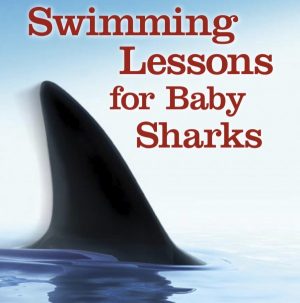Swimming Lessons For Baby Sharks: Practical Advice For New Lawyers
As a junior lawyer, in certain situations volunteering to take notes could be a great way to learn and generate goodwill

Q: In a recent Podcast with Christina Martini, you said new lawyers should show enthusiasm. Is “show enthusiasm” code for “work 70 hours a week as a new attorney?” How would you advise a new attorney who is not physically able to put in those hours to demonstrate commitment or worth, or is working long hours the only acceptable method?
A: This is the second part of my answer to the question. In my column last month, I focused on ways to show that you are “all in” so that senior lawyers are more likely to invest in your career and help you advance. Usually, good goes around. But there was a caveat, of course. Enthusiasm is not a substitute for revenue. That is where we left off.

Legal AI: 3 Steps Law Firms Should Take Now
But first, one insightful reader contacted me to express the concern that lawyers who were overly enthusiastic about doing anything to help, could get saddled with lots of low-value work. That is an important point. As with all things related to lawyering, you need to be strategic. The tasks you take on need to be appropriate for your role. At a firm, your role is to solve legal problems in exchange for legal fees.
As a junior lawyer, in certain situations volunteering to take notes could be a great way to learn and generate goodwill. A key reason to show enthusiasm is to get high-value billable work from lawyers who will mentor you.
But if a lawyer asks you to take notes for an internal administrative meeting, you may want to politely suggest an alternate approach. Rote note taking is not likely to generate goodwill – and it could become routine or expected. You don’t want to become the go-to person for low-value, non-billable tasks.
And that is a perfect segue to the main point of this column: As a lawyer in private practice, you have to generate revenue. And more is better. The reason is simple math.
Sponsored

Navigating Financial Success by Avoiding Common Pitfalls and Maximizing Firm Performance

The Business Case For AI At Your Law Firm


Is The Future Of Law Distributed? Lessons From The Tech Adoption Curve

Is The Future Of Law Distributed? Lessons From The Tech Adoption Curve
Running a law firm costs a lot of money. A firm’s overhead includes costs for technology, marketing, recruiting, administrative support, office space, and the myriad other costs involved in running a firm. Generally, every attorney is responsible for covering a share of the firm’s overhead.
Thus, an associate with low hours may be losing money for the firm – day in and day out. Enthusiasm can help you get work and build relationships. But revenue from doing the work keeps the lights on and pays associate salaries.
With the recent salary increases, it is not surprising that some firms have increased their hours requirements or turned billable targets into billable requirements.
Finances differ from firm to firm. But it can be instructive to get a sense of how much revenue you need to generate to be profitable.
Your cost to the firm includes your total compensation and your overhead allocation. Before you become profitable, you have to cover your own salary and benefits and your share of overhead. And your overhead share can easily equal or exceed your salary. In other words, you may need to generate revenue totaling more than twice your compensation – just to break even.
Sponsored

Generative AI In Legal Work — What’s Fact And What’s Fiction?


Legal AI: 3 Steps Law Firms Should Take Now
And sadly, not all the time you bill will turn into collected revenue. If lawyers write off your time, it does not generate revenue. If clients do not pay for your time, it does not generate revenue.
Your firm may give you information on your collected revenue or your realization rate. A rule of thumb is that firms may expect to collect about 80% of a junior lawyer’s billable time.
Doing stellar work is important. Being friendly and enthusiastic is important. But if you are costing a firm money, the firm can’t keep you over the long-term.
Figure out how many hours it is realistic for you to bill (and collect) consistently. If you can meet the firm standards, diving in and showing enthusiasm will help you stay busy and advance.
Good luck!
Join the conversation by submitting questions on Twitter @Babysharklaw or here. Get the new Second Edition of Swimming Lessons for Baby Sharks here.
Grover E. Cleveland is a Seattle lawyer, speaker and author of Swimming Lessons for Baby Sharks: The Essential Guide to Thriving as a New Lawyer (West 2d. 2016). Grover specializes in programs to help new lawyers successfully transition from law school to practice, helping them provide more value and avoid common mistakes. He is a former partner at Foster Pepper PLLC, one of the Northwest’s larger firms. His clients included the Seattle Seahawks and other entities owned by Microsoft co-founder, Paul Allen. Grover is a frequent presenter on lawyer career success and generational issues at leading law firms and schools nationwide. Many questions in this column come from those programs. Readers may submit questions here or follow him on Twitter @Babysharklaw. He is not related to the 22nd and 24th President of the United States.







